afterLoad (456.36KB) (5.21ms)
afterInitialise (1.27MB) (57.69ms)
afterRoute (857.48KB) (40.75ms)
beforeRenderComponent com_content (35.61KB) (1.6ms)
Before Access::preloadComponents (all components) (69.88KB) (7.75ms)
After Access::preloadComponents (all components) (98.07KB) (6.48ms)
Before Access::preloadPermissions (com_content) (1.6KB) (31μs)
After Access::preloadPermissions (com_content) (3.29MB) (22.62ms)
Before Access::getAssetRules (id:62 name:com_content.category.20) (130.65KB) (459μs)
After Access::getAssetRules (id:62 name:com_content.category.20) (7.38KB) (71μs)
Before Access::getAssetRules (id:8 name:com_content) (51.77KB) (52.47ms)
After Access::getAssetRules (id:8 name:com_content) (6.17KB) (39μs)
afterRenderComponent com_content (1.35MB) (380ms)
afterDispatch (32.63KB) (17.57ms)
beforeRenderRawModule mod_articles_category (READ MORE...) (350.71KB) (25.27ms)
afterRenderRawModule mod_articles_category (READ MORE...) (84.63KB) (260ms)
beforeRenderRawModule mod_tags_popular (Search) (4.81KB) (33μs)
afterRenderRawModule mod_tags_popular (Search) (6.74KB) (174ms)
beforeRenderRawModule mod_custom (BOOST YOUR IMMUNE DEFENSE) (960B) (33μs)
afterRenderRawModule mod_custom (BOOST YOUR IMMUNE DEFENSE) (4.2KB) (11.24ms)
beforeRenderRawModule mod_custom (Are you taking supplements) (736B) (51μs)
afterRenderRawModule mod_custom (Are you taking supplements) (1.03KB) (48μs)
beforeRenderRawModule mod_articles_category (Get additionel and more detailed knowledge about) (8.41KB) (26μs)
afterRenderRawModule mod_articles_category (Get additionel and more detailed knowledge about) (44.33KB) (19.38ms)
beforeRenderRawModule mod_custom (Antiaging) (6.97KB) (35μs)
afterRenderRawModule mod_custom (Antiaging) (1KB) (45μs)
beforeRenderRawModule mod_custom (Exercise) (720B) (11μs)
afterRenderRawModule mod_custom (Exercise) (1.02KB) (22μs)
beforeRenderRawModule mod_custom (Check this before you buy a Q10 product) (752B) (10μs)
afterRenderRawModule mod_custom (Check this before you buy a Q10 product) (944B) (18μs)
beforeRenderModule mod_articles_category (READ MORE...) (267.89KB) (19.1ms)
afterRenderModule mod_articles_category (READ MORE...) (1.25KB) (69μs)
beforeRenderModule mod_tags_popular (Search) (5.17KB) (15μs)
afterRenderModule mod_tags_popular (Search) (2.52KB) (25μs)
beforeRenderModule mod_custom (BOOST YOUR IMMUNE DEFENSE) (1.31KB) (13μs)
afterRenderModule mod_custom (BOOST YOUR IMMUNE DEFENSE) (1.28KB) (21μs)
beforeRenderModule mod_custom (Are you taking supplements) (352B) (10μs)
afterRenderModule mod_custom (Are you taking supplements) (1.28KB) (32μs)
beforeRenderModule mod_articles_category (Get additionel and more detailed knowledge about) (8.03KB) (18μs)
afterRenderModule mod_articles_category (Get additionel and more detailed knowledge about) (1.31KB) (21μs)
beforeRenderModule mod_custom (Antiaging) (7.33KB) (11μs)
afterRenderModule mod_custom (Antiaging) (1.27KB) (19μs)
beforeRenderModule mod_custom (Exercise) (336B) (9μs)
afterRenderModule mod_custom (Exercise) (1.25KB) (19μs)
beforeRenderModule mod_custom (Check this before you buy a Q10 product) (352B) (9μs)
afterRenderModule mod_custom (Check this before you buy a Q10 product) (1.28KB) (19μs)
beforeRenderRawModule mod_menu (Main menu-US) (28.53KB) (560μs)
afterRenderRawModule mod_menu (Main menu-US) (157.05KB) (16.89ms)
beforeRenderModule mod_menu (Main menu-US) (720B) (7μs)
afterRenderModule mod_menu (Main menu-US) (4.36KB) (75μs)
beforeRenderRawModule mod_languages (Sprogskift) (3.44KB) (23μs)
afterRenderRawModule mod_languages (Sprogskift) (29.88KB) (17.59ms)
beforeRenderModule mod_languages (Sprogskift) (720B) (9μs)
afterRenderModule mod_languages (Sprogskift) (5.31KB) (31μs)
beforeRenderRawModule mod_finder () (6.34KB) (15μs)
afterRenderRawModule mod_finder () (154.54KB) (26.24ms)
beforeRenderModule mod_finder () (704B) (7μs)
afterRenderModule mod_finder () (3.29KB) (43μs)
beforeRenderRawModule mod_custom () (6.62KB) (163μs)
afterRenderRawModule mod_custom () (90.52KB) (12.08ms)
beforeRenderModule mod_custom () (704B) (9μs)
afterRenderModule mod_custom () (1.23KB) (60μs)
beforeRenderRawModule mod_menu (Main menu-US) (5.07KB) (1.16ms)
afterRenderRawModule mod_menu (Main menu-US) (5.8KB) (12.21ms)
beforeRenderModule mod_menu (Main menu-US) (720B) (8μs)
afterRenderModule mod_menu (Main menu-US) (3.75KB) (69μs)
beforeRenderRawModule mod_languages (Sprogskift Mobil) (912B) (25μs)
afterRenderRawModule mod_languages (Sprogskift Mobil) (3.89KB) (11.36ms)
beforeRenderModule mod_languages (Sprogskift Mobil) (720B) (7μs)
afterRenderModule mod_languages (Sprogskift Mobil) (1.27KB) (41μs)
beforeRenderRawModule mod_finder () (2.3KB) (15μs)
afterRenderRawModule mod_finder () (6.29KB) (12.12ms)
beforeRenderModule mod_finder () (704B) (6μs)
afterRenderModule mod_finder () (1.23KB) (79μs)
beforeRenderRawModule mod_custom () (8.66KB) (236μs)
afterRenderRawModule mod_custom () (904B) (183μs)
beforeRenderModule mod_custom () (704B) (3μs)
afterRenderModule mod_custom () (2.43KB) (30μs)
beforeRenderRawModule mod_custom () (688B) (92μs)
afterRenderRawModule mod_custom () (896B) (104μs)
beforeRenderModule mod_custom () (704B) (2μs)
afterRenderModule mod_custom () (2.71KB) (23μs)
afterRender (180.79KB) (41.59ms)
| 1 x afterRenderComponent com_content (1.35MB) (30.14%) | 380.09ms |
| 1 x afterRenderRawModule mod_articles_category (READ MORE...) (84.63KB) (20.65%) | 260.46ms |
| 1 x afterRenderRawModule mod_tags_popular (Search) (6.74KB) (13.8%) | 173.99ms |
| 1 x afterInitialise (1.27MB) (4.57%) | 57.69ms |
| 1 x Before Access::getAssetRules (id:8 name:com_content) (51.77KB) (4.16%) | 52.47ms |
| 1 x afterRender (180.79KB) (3.3%) | 41.59ms |
| 1 x afterRoute (857.48KB) (3.23%) | 40.75ms |
| 1 x afterRenderRawModule mod_finder () (154.54KB) (2.08%) | 26.24ms |
| 1 x beforeRenderRawModule mod_articles_category (READ MORE...) (350.71KB) (2%) | 25.27ms |
| 1 x After Access::preloadPermissions (com_content) (3.29MB) (1.79%) | 22.62ms |
| 1 x afterRenderRawModule mod_articles_category (Get additionel and more detailed knowledge about) (44.33KB) (1.54%) | 19.38ms |
| 1 x beforeRenderModule mod_articles_category (READ MORE...) (267.89KB) (1.51%) | 19.10ms |
| 1 x afterRenderRawModule mod_languages (Sprogskift) (29.88KB) (1.4%) | 17.59ms |
| 1 x afterDispatch (32.63KB) (1.39%) | 17.57ms |
| 1 x afterRenderRawModule mod_menu (Main menu-US) (157.05KB) (1.34%) | 16.89ms |
| 1 x afterRenderRawModule mod_menu (Main menu-US) (5.8KB) (0.97%) | 12.21ms |
| 1 x afterRenderRawModule mod_finder () (6.29KB) (0.96%) | 12.12ms |
| 1 x afterRenderRawModule mod_custom () (90.52KB) (0.96%) | 12.08ms |
| 1 x afterRenderRawModule mod_languages (Sprogskift Mobil) (3.89KB) (0.9%) | 11.36ms |
| 1 x afterRenderRawModule mod_custom (BOOST YOUR IMMUNE DEFENSE) (4.2KB) (0.89%) | 11.24ms |
| 1 x Before Access::preloadComponents (all components) (69.88KB) (0.61%) | 7.75ms |
| 1 x After Access::preloadComponents (all components) (98.07KB) (0.51%) | 6.48ms |
| 1 x afterLoad (456.36KB) (0.41%) | 5.21ms |
| 1 x beforeRenderComponent com_content (35.61KB) (0.13%) | 1.60ms |
| 1 x beforeRenderRawModule mod_menu (Main menu-US) (5.07KB) (0.09%) | 1.16ms |
| 1 x beforeRenderRawModule mod_menu (Main menu-US) (28.53KB) (0.04%) | 560μs |
| 1 x Before Access::getAssetRules (id:62 name:com_content.category.20) (130.65KB) (0.04%) | 459μs |
| 1 x beforeRenderRawModule mod_custom () (8.66KB) (0.02%) | 236μs |
| 1 x afterRenderRawModule mod_custom () (904B) (0.01%) | 183μs |
| 1 x beforeRenderRawModule mod_custom () (6.62KB) (0.01%) | 163μs |
| 1 x afterRenderRawModule mod_custom () (896B) (0.01%) | 104μs |
| 1 x beforeRenderRawModule mod_custom () (688B) (0.01%) | 92μs |
| 1 x afterRenderModule mod_finder () (1.23KB) (0.01%) | 79μs |
| 1 x afterRenderModule mod_menu (Main menu-US) (4.36KB) (0.01%) | 75μs |
| 1 x After Access::getAssetRules (id:62 name:com_content.category.20) (7.38KB) (0.01%) | 71μs |
| 1 x afterRenderModule mod_articles_category (READ MORE...) (1.25KB) (0.01%) | 69μs |
| 1 x afterRenderModule mod_menu (Main menu-US) (3.75KB) (0.01%) | 69μs |
| 1 x afterRenderModule mod_custom () (1.23KB) (0%) | 60μs |
| 1 x beforeRenderRawModule mod_custom (Are you taking supplements) (736B) (0%) | 51μs |
| 1 x afterRenderRawModule mod_custom (Are you taking supplements) (1.03KB) (0%) | 48μs |
| 1 x afterRenderRawModule mod_custom (Antiaging) (1KB) (0%) | 45μs |
| 1 x afterRenderModule mod_finder () (3.29KB) (0%) | 43μs |
| 1 x afterRenderModule mod_languages (Sprogskift Mobil) (1.27KB) (0%) | 41μs |
| 1 x After Access::getAssetRules (id:8 name:com_content) (6.17KB) (0%) | 39μs |
| 1 x beforeRenderRawModule mod_custom (Antiaging) (6.97KB) (0%) | 35μs |
| 1 x beforeRenderRawModule mod_tags_popular (Search) (4.81KB) (0%) | 33μs |
| 1 x beforeRenderRawModule mod_custom (BOOST YOUR IMMUNE DEFENSE) (960B) (0%) | 33μs |
| 1 x afterRenderModule mod_custom (Are you taking supplements) (1.28KB) (0%) | 32μs |
| 1 x Before Access::preloadPermissions (com_content) (1.6KB) (0%) | 31μs |
| 1 x afterRenderModule mod_languages (Sprogskift) (5.31KB) (0%) | 31μs |
| 1 x afterRenderModule mod_custom () (2.43KB) (0%) | 30μs |
| 1 x beforeRenderRawModule mod_articles_category (Get additionel and more detailed knowledge about) (8.41KB) (0%) | 26μs |
| 1 x afterRenderModule mod_tags_popular (Search) (2.52KB) (0%) | 25μs |
| 1 x beforeRenderRawModule mod_languages (Sprogskift Mobil) (912B) (0%) | 25μs |
| 1 x beforeRenderRawModule mod_languages (Sprogskift) (3.44KB) (0%) | 23μs |
| 1 x afterRenderModule mod_custom () (2.71KB) (0%) | 23μs |
| 1 x afterRenderRawModule mod_custom (Exercise) (1.02KB) (0%) | 22μs |
| 1 x afterRenderModule mod_custom (BOOST YOUR IMMUNE DEFENSE) (1.28KB) (0%) | 21μs |
| 1 x afterRenderModule mod_articles_category (Get additionel and more detailed knowledge about) (1.31KB) (0%) | 21μs |
| 1 x afterRenderModule mod_custom (Antiaging) (1.27KB) (0%) | 19μs |
| 1 x afterRenderModule mod_custom (Exercise) (1.25KB) (0%) | 19μs |
| 1 x afterRenderModule mod_custom (Check this before you buy a Q10 product) (1.28KB) (0%) | 19μs |
| 1 x afterRenderRawModule mod_custom (Check this before you buy a Q10 product) (944B) (0%) | 18μs |
| 1 x beforeRenderModule mod_articles_category (Get additionel and more detailed knowledge about) (8.03KB) (0%) | 18μs |
| 2 x beforeRenderModule mod_menu (Main menu-US) (720B) (0%) | 15μs |
| 1 x beforeRenderRawModule mod_finder () (6.34KB) (0%) | 15μs |
| 1 x beforeRenderRawModule mod_finder () (2.3KB) (0%) | 15μs |
| 1 x beforeRenderModule mod_tags_popular (Search) (5.17KB) (0%) | 15μs |
| 3 x beforeRenderModule mod_custom () (704B) (0%) | 14μs |
| 1 x beforeRenderModule mod_custom (BOOST YOUR IMMUNE DEFENSE) (1.31KB) (0%) | 13μs |
| 2 x beforeRenderModule mod_finder () (704B) (0%) | 13μs |
| 1 x beforeRenderRawModule mod_custom (Exercise) (720B) (0%) | 11μs |
| 1 x beforeRenderModule mod_custom (Antiaging) (7.33KB) (0%) | 11μs |
| 1 x beforeRenderModule mod_custom (Are you taking supplements) (352B) (0%) | 10μs |
| 1 x beforeRenderRawModule mod_custom (Check this before you buy a Q10 product) (752B) (0%) | 10μs |
| 1 x beforeRenderModule mod_custom (Check this before you buy a Q10 product) (352B) (0%) | 9μs |
| 1 x beforeRenderModule mod_languages (Sprogskift) (720B) (0%) | 9μs |
| 1 x beforeRenderModule mod_custom (Exercise) (336B) (0%) | 9μs |
| 1 x beforeRenderModule mod_languages (Sprogskift Mobil) (720B) (0%) | 7μs |
 Breast milk is the optimal nutrition for babies, but according to a population study from New Zealand, which is published in Nutrients, breastfeeding women often lack vitamin D, vitamin E, manganese, selenium, and other important nutrients. The authors emphasize how crucial it is for both mother and child to be well-supplied with nutrients, as deficiencies can affect the child's development and the mother's health and mood.
Breast milk is the optimal nutrition for babies, but according to a population study from New Zealand, which is published in Nutrients, breastfeeding women often lack vitamin D, vitamin E, manganese, selenium, and other important nutrients. The authors emphasize how crucial it is for both mother and child to be well-supplied with nutrients, as deficiencies can affect the child's development and the mother's health and mood.








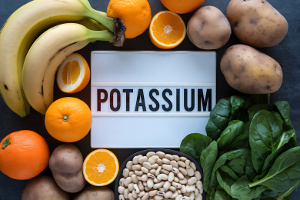 High blood pressure is the primary cause of cardiovascular diseases, strokes, and early death. There has primarily been focus on limiting salt (sodium) intake, but now it appears that the balance between sodium and potassium is even more important. According to a study published in the American Journal of Physiology-Renal Physiology, consuming bananas, avocados, broccoli, nuts, and other potassium-rich foods can be beneficial in preventing and treating high blood pressure.
High blood pressure is the primary cause of cardiovascular diseases, strokes, and early death. There has primarily been focus on limiting salt (sodium) intake, but now it appears that the balance between sodium and potassium is even more important. According to a study published in the American Journal of Physiology-Renal Physiology, consuming bananas, avocados, broccoli, nuts, and other potassium-rich foods can be beneficial in preventing and treating high blood pressure.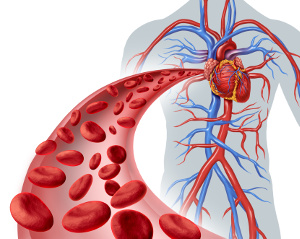
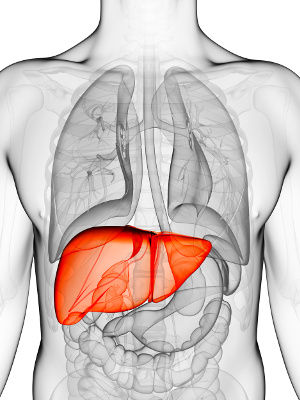 Non-alcoholic fatty liver disease (NAFLD) and alcoholic fatty liver disease are associated with the development of other liver diseases, obesity, diabetes, cardiovascular diseases, and cancer. Diet and drinking habits play a major role. Magnesium deficiency also seems to increase the risk of cardiovascular disease and other complications, particularly in individuals with liver-related metabolic disorders, according to a large population study published in Nutrients.
Non-alcoholic fatty liver disease (NAFLD) and alcoholic fatty liver disease are associated with the development of other liver diseases, obesity, diabetes, cardiovascular diseases, and cancer. Diet and drinking habits play a major role. Magnesium deficiency also seems to increase the risk of cardiovascular disease and other complications, particularly in individuals with liver-related metabolic disorders, according to a large population study published in Nutrients.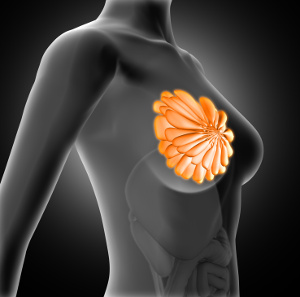


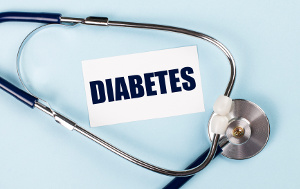 Most people with type 2 diabetes have hidden deficiencies in nutrients such as vitamin D, magnesium, and vitamin B12. This is the conclusion of a major meta-analysis published in BMJ Nutrition, Prevention & Health. The researchers also explain how diet, metabolic processes, genetics, and medication can influence the body’s ability to utilize these nutrients. Since type 2 diabetes and its precursor, metabolic syndrome, are spreading like a pandemic, much greater attention should be given to essential nutrients, as deficiencies contribute to the development and worsening of the disease.
Most people with type 2 diabetes have hidden deficiencies in nutrients such as vitamin D, magnesium, and vitamin B12. This is the conclusion of a major meta-analysis published in BMJ Nutrition, Prevention & Health. The researchers also explain how diet, metabolic processes, genetics, and medication can influence the body’s ability to utilize these nutrients. Since type 2 diabetes and its precursor, metabolic syndrome, are spreading like a pandemic, much greater attention should be given to essential nutrients, as deficiencies contribute to the development and worsening of the disease.